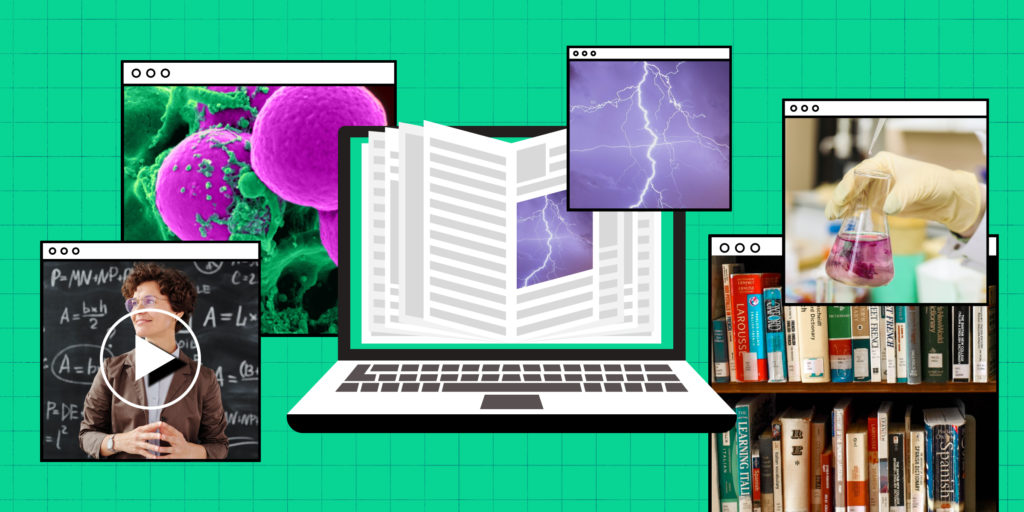We are what we think we are. Students may tell themselves that they’re not good at math or writing. Or more damaging, that they’re just not as smart as others. The feeling of inadequacy or being perceived as ‘less than’ is what’s known as a ‘deficit mindset,’ a line of thinking far too common among first-year students. Helping to shift their narratives to a position of strength was an important motivator for Jeffrey Klausman, Senior Professor of English at Whatcom Community College, in considering how to set freshman students on the path to success. His dynamic Top Hat textbook, Composing a College Career, is the culmination of these reflections. The result is a unique approach that reminds students that they are intelligent and capable as they are. Through relatable stories, interactive exercises and ‘strength prompts,’ Klausman challenges students to rewrite their internal narratives as it guides learners towards successful strategies in navigating their first year at college.
At our recent webinar, Klausman shared how his text supports belonging, engagement and strength-building as a means of helping students overcome ‘deficit’ thinking.
→ Free preview: Explore Composing a College Career today
Offering a unique strengths-based approach to student success
The majority of students, even those who may be academically prepared, arrive at college without the knowledge of the academy, its language and customs, or social confidence to effectively navigate campus life. This mirrors Klausman’s own experience as a freshman arriving at Portland State University. At the time, he felt completely lost and out of his element. Years later as a faculty member, Klausman sees the same mindset and desire for belonging in his own students.
In his experience, students too often internalize stories based on self-doubt: “My vocabulary isn’t very good,” or “I struggle to complete work on time.” In his latest text, Klausman offers an antidote to ‘deficit thinking’ by encouraging students to take ownership of their own stories, which can have a lasting impact on their educational mindset and college experience.
Part one of Composing a College Career reminds faculty and students of the power of story in overcoming imposter syndrome. In moving interviews with nine students, Klausman works to dispel the myth that learners are “less than” or “inadequate” upon arriving on campus. “Strength to strength” prompts within each chapter give students a chance to reflect on their existing knowledge and apply it to new situations, building confidence along the way. Students are then invited to reflect on their own narratives and definitions of success through the interactive “What’s your story?” feature.
Klausman also highlights the importance of mentorship, engagement and purpose in composing a successful college career, offering helpful suggestions to both students and faculty.
- Mentorship: Relationships have a profound impact on success. Consider connecting a non-major student with someone in your department who can help them navigate your discipline.
- Engagement: Students who are more engaged are more likely to persist. Point students to class and campus resources to ensure they have what they need to thrive.
- Purpose: Consider how your course can get students one step closer to achieving their career goals or contribute to their broader aspirations for society.

Composing an academic mindset and strategies
Klausman reminds us that when students don’t feel like they belong, it has a profound effect on their ability to thrive. If students feel like an outsider, they’re less likely to ask for help accessing resources in the library. Or avoid taking advantage of office hours or other opportunities for guidance and support. Ultimately, lack of confidence can have a cumulative effect on a student’s academic trajectory.
Chapters in part two of the book emphasize developing an academic mindset, cultivating wellness, and forging a college identity. Part three focuses on practical skills and study habits—such as setting goals, managing procrastination and conducting research—to give students the confidence they need to realize that they are capable of growing their skillset and navigating academia.
Klausman’s textbook goes beyond the ‘what’ to answer the ‘how.’ Abandoning a deficit-based mindset, the book helps students identify and personalize strategies to build on their existing strengths to maximize their own success in college. Of course, not every First Year Experience course is the same. The good news is that the customization that Top Hat offers allows faculty to incorporate campus-specific resources and case studies into the text to better meet the needs of their students. Discover the strength-based approach that first-year faculty are widely adopting: explore Composing a College Career today.


